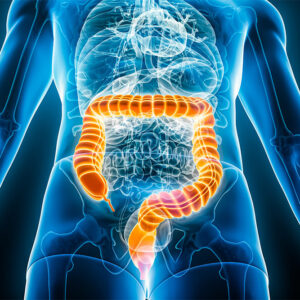
Feelings of Apathy May be a Serious Red Flag
Dear Reader,
I have a few important questions for you…
Do you ever find yourself not having much enthusiasm or concern in your day-to-day life?
Or perhaps you’ve noticed these signs of apathy in someone you love?
If so, I urge you NOT to chalk these off as “mood swings” or just a temporary “phase”.
Because you see, lack of carrying or apathy could be a red flag for a very serious disease.
Researchers at the University of Cambridge, publishing their work in the Journal of the Alzheimer’s Association, found a close association between feelings of apathy and Alzheimer’s disease.
Apathy or the loss of interest or motivation, is a common sign of many diseases. The list includes depression and other mental conditions and hormonal changes (like low thyroid) or low blood sugar.
But this is the first study to find apathy may be a sign of dementia.
The researcher team investigated a specific type of dementia called frontotemporal dementia – which is one of the leading causes of dementia in younger folks (typically striking between the ages of 45 and 65).
With frontotemporal dementia there are behavior and language changes along with personality changes. Patients sometimes are more impulsive and engage in inappropriate or compulsive behavior (picture a severe midlife crisis and you got it).
One of the common threads of this type of dementia is people become apathetic, losing interest in things they normally enjoy.
While it looks like depression on the outside, it is actually dementia triggered by a shrinkage of a particular region of the front of your brain (called the frontotemporal region).
Now, we all go through periods of our lives where we don’t care, or feel sad. But if it’s persistent, then you’ll want to talk to your doctor.
Of course, it is also a good idea to rule out low thyroid hormone, psychiatric illness (such as depression) and problems with blood sugar. But this persistent loss of interest is something to investigate, especially if you notice it in someone you love.
In the meantime, keep your brain as healthy as possible with the following:
- Magnesium: Start with the easiest thing first. I recommend taking 400 mg of magnesium a day (more than the study showed was effective). Magnesium is also good for your heart, your brain, and your muscles.
- Fish Oil: Your brain needs good oils in order to function well, and fish oil is your best bet.
- Stop Inflammation: Your brain is especially susceptible to inflammation and high inflammation can cause depression. I like curcumin and bacopa to support good brain health.
- Get good sleep: This can be hard sometimes, but If you need help, look to melatonin, theanine, and calming herbs to help you.
- Exercise: I know when you are feeling low it is hard to get out and do something like exercise. But simple exercise is scientifically proven to ease depression.
P.S. Could this drug be putting you on the FAST TRACK for dementia? Click here to find out if you’re taking it, and all the important details.
Written By Dr. Scott Olson, ND
Nearly 25 years ago, failed mainstream medical treatments left Dr. Olson in constant pain – and his health in ruins. And that’s when he did something REVOLUTIONARY. He began his career in medicine – and dedicated his life to uncovering the true, underlying causes of disease.
Through his innovative medical practices in Tennessee and Colorado, Dr. Olson has helped cure countless seniors from across America of arthritis… heart disease… diabetes… and even cancer. All without risky prescription drugs or painful surgeries.
View More Free Articles
FDA Finally Admits “BANNED” Soda Ingredient is Unsafe
I’m not a soda fan for MANY reasons. I wrote an entire book on the dangers of sugar, for example. And research links soda drinking to fatty liver disease, heart disease, high blood pressure, diabetes, obesity, and Alzheimer’s. And the diet stuff is no better. Fake-sugar-filled diet sodas cause “metabolic confusion,” and artificial sweeteners are...
Discover WHY We Accidentally Overeat (and How to Stop)
Picture this… You finish eating a nice meal feeling just fine. But then, 20 minutes later, you’re groaning and clutching your belly because you feel uncomfortably stuffed. If this sounds familiar, you’re in good company. Most of us have had this happen. Science reveals why accidental overeating occurs… and what we can do to avoid...
Find Exercise Exhausting and Painful? Try THIS Natural Fix
If you’ve heard it once, you’ve heard it a thousand times: “You need to exercise.” And sure, you know how vital it is to healthy aging. But let’s be honest, sometimes it feels nearly impossible to get moving—especially when you know you’ll be sore for DAYS after. However, hold on to your seat because I’ve...
Mailbag: Unsteady on Your Feet? Now What?
“I’ve been having trouble with my balance lately and have fallen a couple of times. Could this be related to osteoporosis or another underlying cause?” – John Hi John, It’s always concerning when someone experiences balance issues or falls. While osteoporosis can contribute to an increased risk of falling, several other underlying causes should also...
Is There Really a Hidden Benefit to BROCCOLI?
Just when we thought broccoli’s resume couldn’t get any more impressive, new research proves us wrong. The phytonutrients in this tasty veggie can lower inflammation… balance blood sugar… and even boost your memory. And you likely already know of broccoli’s legendary prowess in preventing cancer. Now, a new study reveals that sulforaphane, the potent compound...
Belly Trick BOOSTS Brain Function
Boy do I love a cheap and easy solution. And if you can’t resist a good bargain either, keep reading. Because I have a brain-boosting one to share that fits the bill. If you’re like most folks, you intend to stay as sharp as a tack well into your golden years. So, you’re always on...
The Hidden Heart Danger LURKING in Your Gut?
Dear Living Well Daily Reader, Living with inflammatory bowel disease (IBD) is no walk in the park. The cramping, the urgency, the endless trips to the bathroom—it’s a daily struggle that can leave you exhausted and frustrated. And here’s the kicker: sometimes, IBD’s vague symptoms can lead to misdiagnosis or even NO diagnosis at all....
Has the Key to Unlocking Better MS Treatments Been Found?
Dear Living Well Daily Reader, Imagine waking up one morning and feeling a strange tingling in your fingers. You brush it off, thinking it’s just a pinched nerve. But then, your vision starts to blur, and your balance is thrown off. Suddenly, you’re faced with a terrifying reality: you have multiple sclerosis (MS). For the...
6 Secret Ways to Spot HIDDEN Processed Foods
“Avoid eating processed foods,”—If I’ve said it once, I’ve said it a thousand times. The reason why is simple. These Frankenfoods are designed to satisfy your taste buds. But they leave your body full of foreign chemicals that can cause harm and in need of more nutrients. But a patient asked me the other day,...
8 Red Flags There’s a Heart Attack in YOUR Future
Humor me and count to 40. Done? According to the Centers for Disease Control and Prevention (CDC), someone in the United States just had a heart attack. That adds up to around 805,000 people a year. Many of those were a “silent” heart attack, with the victim having no clue it even happened—and they go...









